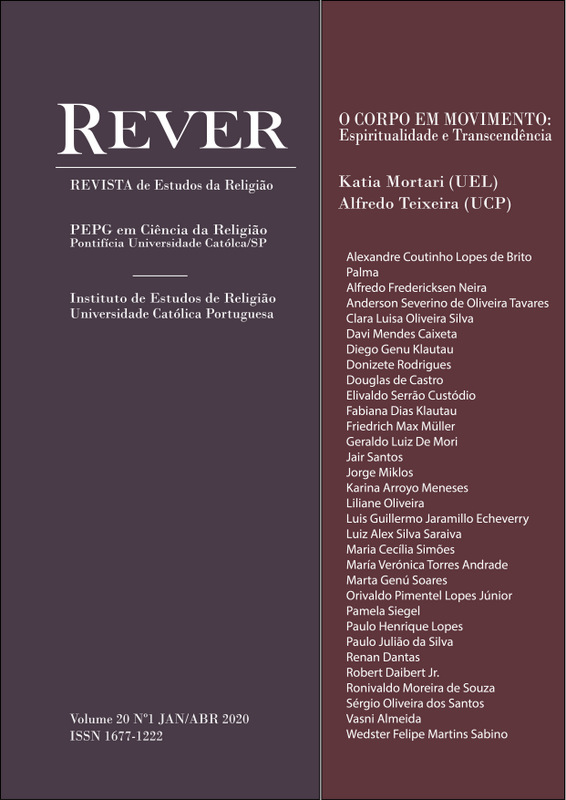Em “certos dias santos” numa “dança sem fim”: o movimento dos corpos dos escravizados em suas experiências religiosas no Brasil Colonial (Pernambuco, século XVII)
DOI:
https://doi.org/10.23925/1677-1222.2020vol20i1a2Palavras-chave:
Danças, Religião, Rituais afro-brasileiros, Escravidão, Heranças africanasResumo
Este artigo tem como objetivo principal analisar o significado do corpo na experiência religiosa de alguns escravizados de origem centro-africana que viveram em Pernambuco nos anos 30 do século XVII, a partir da análise de dois textos produzidos, neste período, por Zacharias Wagener, um viajante europeu que morou na região. Procura-se demonstrar que o movimento de seus corpos, descrito nestes relatos, estava ligado à sua capacidade de transcendência, superação do sofrimento e construção de sentido por meio da releitura de alguns elementos das tradições religiosas centro--africanas transplantadas para o Brasil, que contribuíam para a sobrevivência e ressignificação, neste território colonial, das heranças religiosas de seu continente de origem.
Downloads
Publicado
Como Citar
Edição
Seção
Licença
Autores que publicam nesta revista concordam com os seguintes termos:
- Autores mantém os direitos autorais e concedem à revista o direito de primeira publicação, com o trabalho simultaneamente licenciado sob a Licença Attribution-NonCommercial 4.0 International, que permite o compartilhamento do trabalho com reconhecimento da autoria e publicação inicial nesta revista.
- Autores têm autorização para assumir contratos adicionais separadamente, para distribuição não exclusiva da versão do trabalho publicada nesta revista (ex.: publicar em repositório institucional ou como capítulo de livro), com reconhecimento de autoria e publicação inicial nesta revista.


